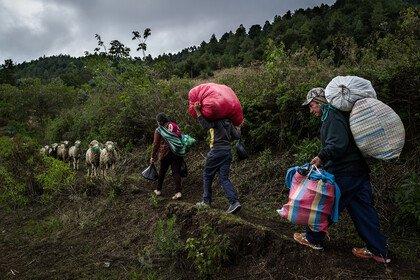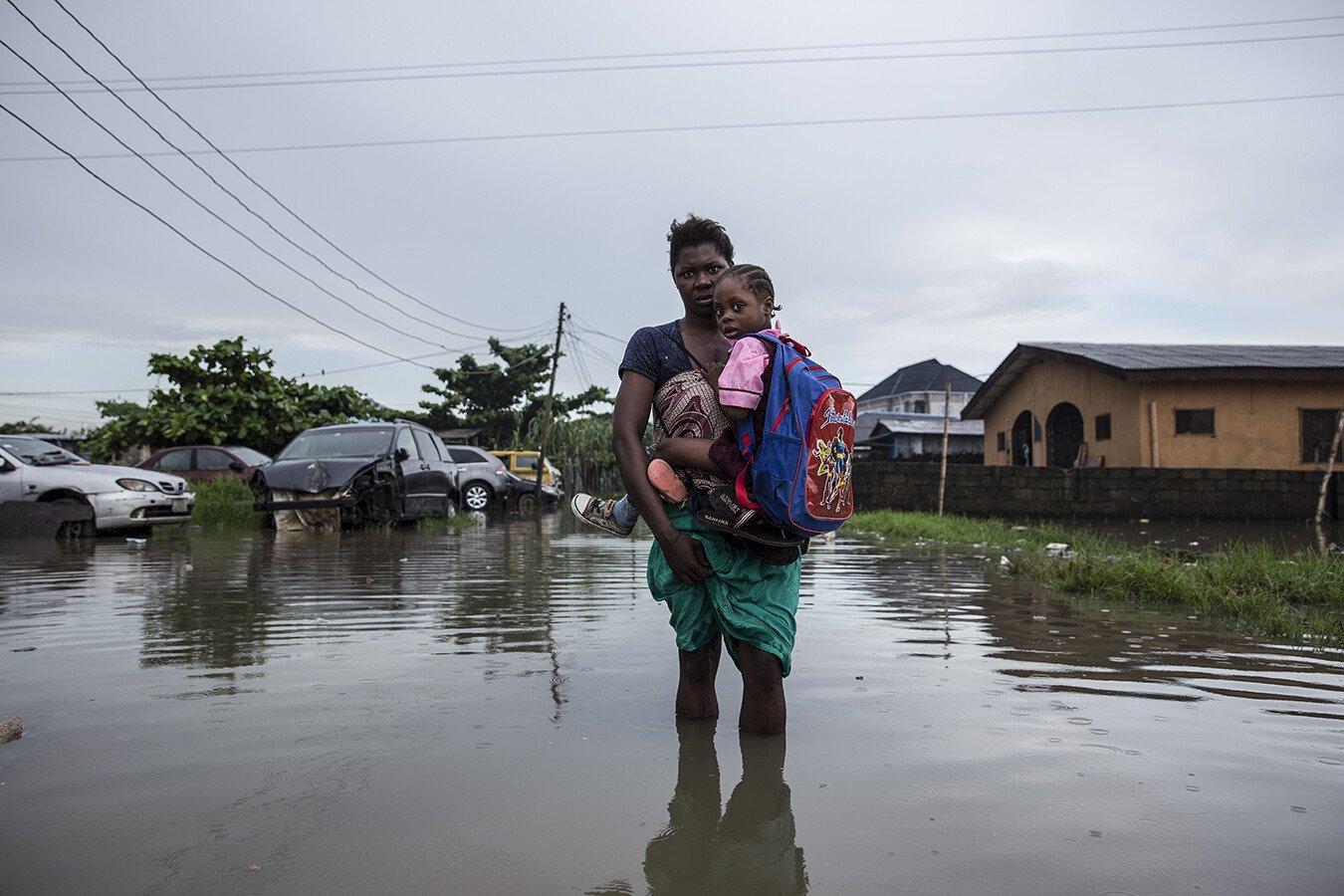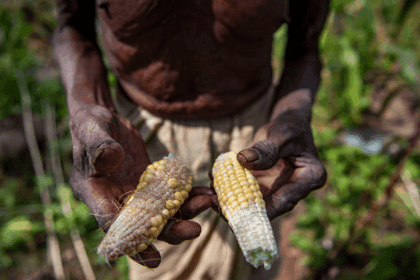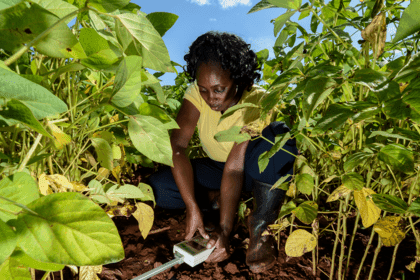
Five things the IPCC report tells us about climate change and health
More than four in ten people live in parts of the world that are highly vulnerable to climate change, reveals the IPCC's 2022 report. The crisis is a clear threat to people’s health, lives and livelihoods. But if we act now, we can reduce the impact and protect health.

Nyancho NwaNri / Wellcome Photography Prize 2020
Climate change is more than an environmental disaster. A report from the UN’s Intergovernmental Panel on Climate Change (IPCC) highlights how the crisis is a risk to health – increasing global awareness of the link between climate and health.
Here are five key things you need to know.
1. Climate change is already affecting health
The evidence is clear – climate change is having a negative effect on our physical and mental health. The scale of the impact is vast with millions of people around the world already facing the consequences of climate change daily.
A hotter planet is dramatically increasing the number of people exposed to significant heat stress. A more unpredictable environment reduces the ability of farmers to produce food and increases the risk of hunger and loss of livelihoods. Increased temperatures and extreme climate events are also causing mental health challenges and leading to the loss of traditions and cultural heritage.
Without action to slow global warming, food-borne, water-borne and vector-borne disease risks are also expected to rise. In particular, the prevalence of dengue fever – one of the deadliest mosquito-borne diseases – will increase with longer seasons and wider geographical spread.
The list goes on. And that’s why climate and health policymakers must pay attention to this landmark report and use it to guide decision-making.
2. Urgent action is needed
The IPCC is clear in its assessment: the window for action is closing. As described by UN secretary general, António Guterres, the report is “an atlas of human suffering and a damning indictment of failed climate leadership”. We have the evidence that without urgent action, the future will be bleak.
Most pressing is that those who have contributed the least to climate change and are typically also the least able to cope with the consequences, are the ones who are hardest hit. This is the injustice of this crisis.
But, if the world acts decisively to limit rising temperatures, we can reduce the impact of the crisis and prevent potentially irreversible effects. If we fail to stop temperatures rising, our options for adapting to protect health will become less effective, and in some cases, irrelevant.
Urgent, concerted and committed action across society to significantly reduce greenhouse gas emissions is now the critical step to prevent the worst impacts of climate change.
3. Science is helping
To respond to the crisis, we need to listen to the science and focus on both the urgent actions required now to make the impacts of climate change less severe (mitigation) and the steps that will protect people from current and future impacts (adaptation).
We don’t yet understand all the ways in which climate change is affecting our health, but we know enough to act now.
Right now, several important questions remain:
-
What are the most significant effects of climate change on health, who is affected most and in what way? For example, some populations will be most affected by heat stress; others may be affected by the change in distribution of vector-borne diseases such as malaria; while others may face food shortages as agricultural productivity is damaged by the changing environment.
-
As we take the significant steps required to reduce global greenhouse gas emissions, are there solutions that could simultaneously benefit health? For example, what are the potential benefits of active travel (walking, cycling) for health and for the planet?
-
How can communities around the world adapt to the diverse impacts of climate change in a way that will protect health? For example, changing our food systems to produce healthier food, prevent undernutrition and promote climate resilience.
The IPCC report shows us what we can learn when we bring different disciplines together to build a more robust understanding of climate change, including health impacts. We must continue to collaborate to find solutions that are backed by science.
4. Investing now is cheaper than inaction
Acting now to mitigate the effects of climate change is critical if we are to avoid the worst impacts on health, but it also makes economic sense.
A Reuters poll of climate economists found that an investment of just two to three per cent of global GDP each year until 2050 is required to reach the Paris Agreement goal of net-zero carbon emissions. The cost of inaction – not least the potential costs to health services from climate-related ill health – is likely to be far greater. The financial value of the health benefits from improved air quality alone is projected to be larger than the cost of meeting the Paris Agreement goals.
But money is often presented as a barrier. While national planning on climate and health is advancing, these plans need to be strengthened and implementing them remains a challenge.
Greater investment to protect the health of those most at risk should be a priority.
5. Everyone must work together
Tackling climate as a health challenge requires the whole of society to work together. This involves national agencies, local governments, the private sector, academia, NGOs and communities making shared decisions and investments that benefit everyone and are backed by science.
Wellcome is working with people around the world – including those most affected – and supporting research to help reduce the impact of climate change on health.
The IPCC report is sobering, showing us that the climate crisis is a health crisis and is accelerating at an even faster rate than previously thought. But there is still a window of opportunity. We must act together now to protect the health of people and our planet.


